Text
#urdu academia#urdu language#urdu poems#urdu quotes#urdu sher#urdu words#pakistan#urdu sad poetry#urdulovers#islamic#ramadan#ramadhan#islamic video#islam#instagram quotes
1 note
·
View note
Text
True Relationship Quotes In Urdu
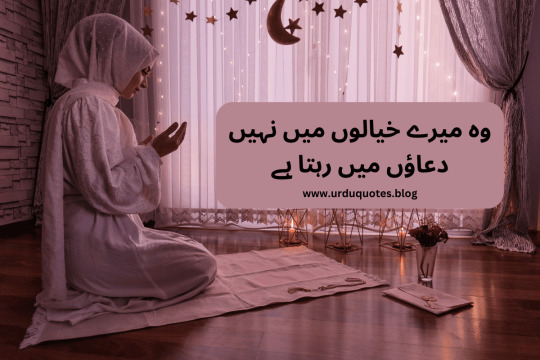
Uncover the heartwarming world of true relationship quotes in urdu. The urdu language is filled with tender expressions that speak volumes about love, bonds, and connections. Examine the profound depth of emotions and let these quotes connect to your own journey of relationships. Begin searching for genuine inspiration.
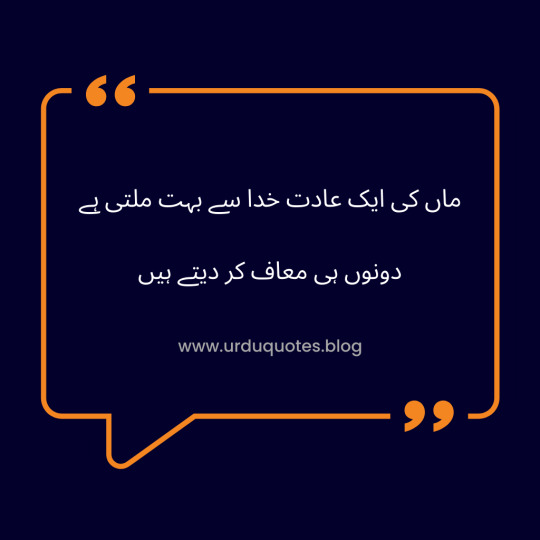
”Maa ki aik aadat khuda se bohut milti hai
Donon hi maaf kar dete hain”
ماں کی ایک عادت خدا سے بہت ملتی ہے
دونوں ہی معاف کر دیتے ہیں
by Jamil Nihal
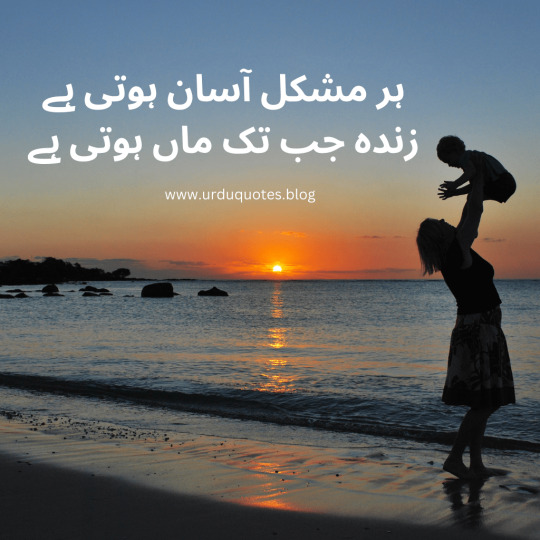
"Har mushkil aasan hoti hai
Zinda jab tak maa hoti hai"
ہر مشکل آسان ہوتی ہے
زندہ جب تک ماں ہوتی ہے
by Jamil Nihal
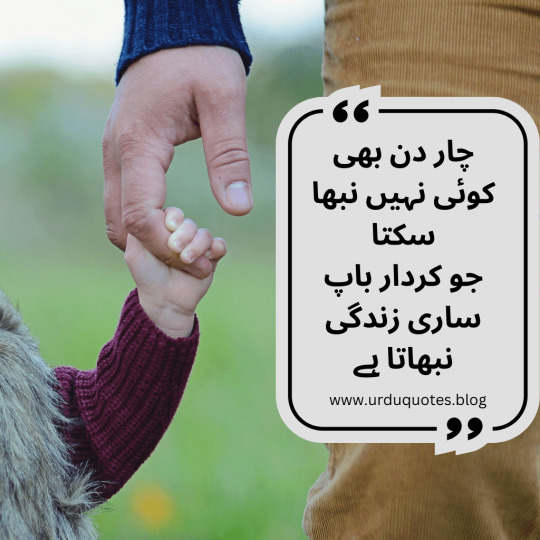
"Char din bhi koi nahin nibha sakta
Jo kirdar baap sari zindagi nibhata hai"
چار دن بھی کوئی نہیں نبھا سکتا
جو کردار باپ ساری زندگی نبھاتا ہے
by Jamil Nihal
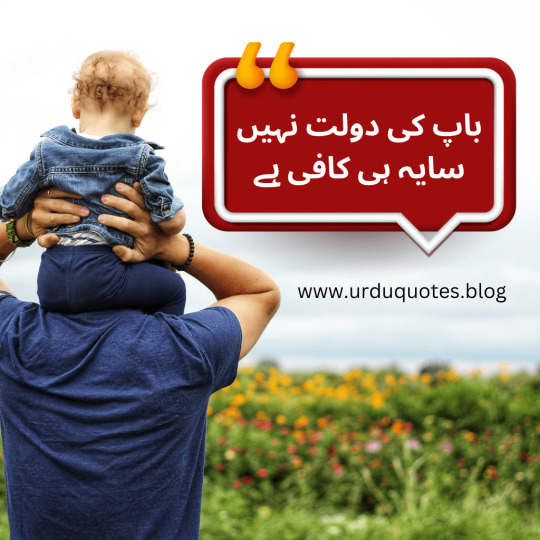
"Baap ki daulat nahin
Saya hi kafi hai"
باپ کی دولت نہیں
سایہ ہی کافی ہے
by Jamil Nihal
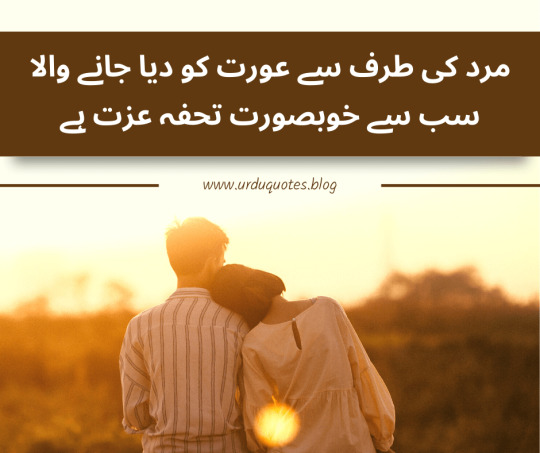
"Mard ki taraf se aurat ko diya jaane wala
Sabse khubsurat tohfa izzat hai"
مرد کی طرف سے عورت کو دیا جانے والا
سب سے خوبصورت تحفہ عزت ہے
by Jamil Nihal
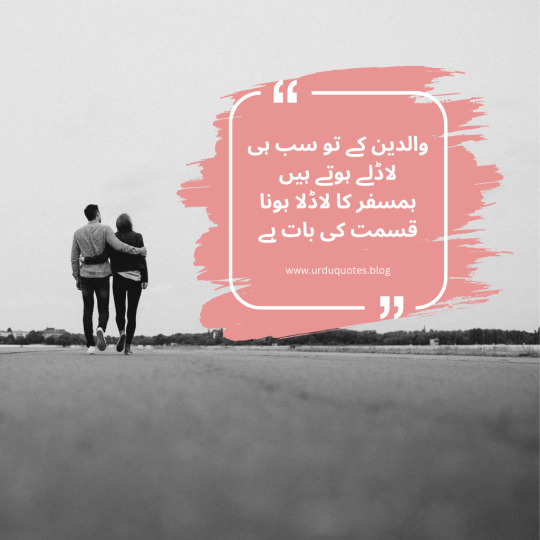
"Walden ke to sab hi ladle hote hain
Humsafar ka ladla hona kismat ki baat hai"
والدین کے تو سب ہی لاڈلے ہوتے ہیں
ہمسفر کا لاڈلا ہونا قسمت کی بات ہے
by Jamil Nihal
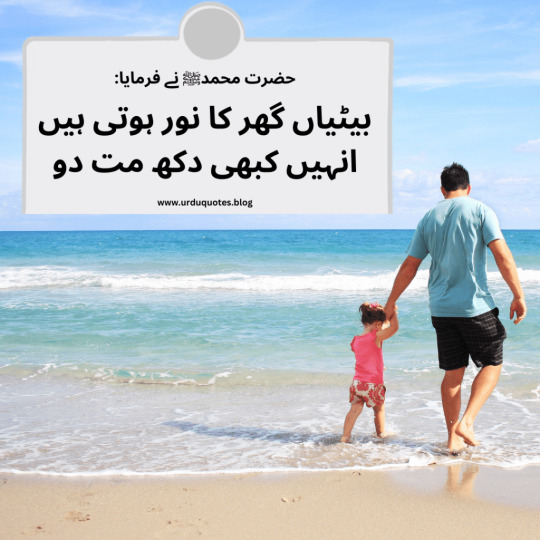
"Mohammed (PBUH) Quotes:
Betiyan ghar ka nur hoti hai inhen kabhi dukh mat do"
حضرت محمدﷺ نے فرمایا:
بیٹیاں گھر کا نور ہوتی ہیں انہیں کبھی دکھ مت دو
by Jamil Nihal
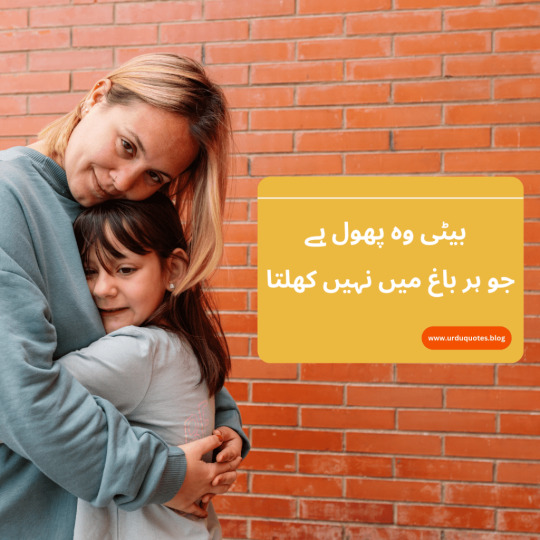
"Beti vo phool hai
Jo har bag mein nahin khilta"
بیٹی وہ پھول ہے
جو ہر باغ میں نہیں کھلتا
by Jamil Nihal
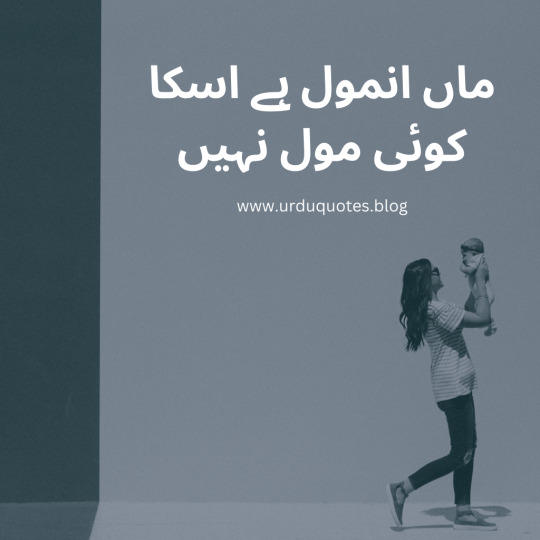
"Maan anmol hai iska
Koi mol nahin"
ماں انمول ہے اسکا
کوئی مول نہیں
by Jamil Nihal
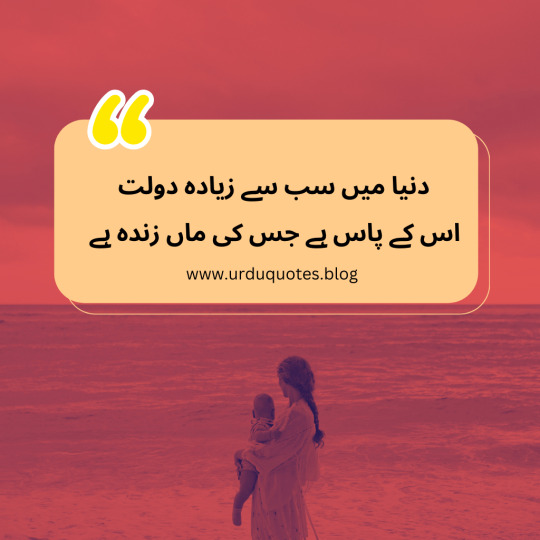
"Duniya mein sabse ziyada daulat
Uske pass hai jiski maan zinda hai"
دنیا میں سب سے زیادہ دولت
اس کے پاس ہے جس کی ماں زندہ ہے
by Jamil Nihal
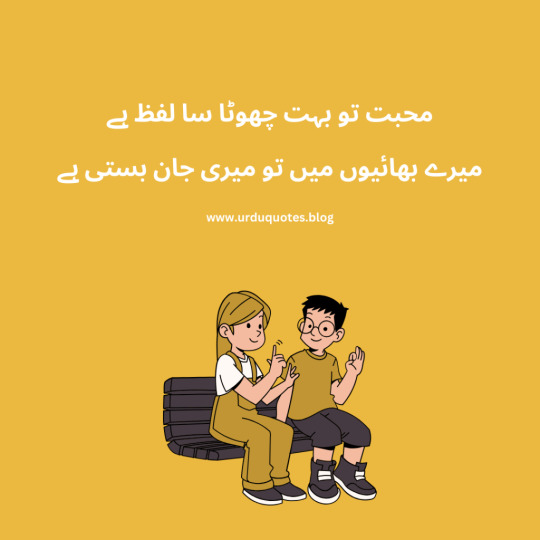
"Mohabbat to bahut chota sa lafaz hai
Mere bhaiyon mein to meri jaan basti hai"
محبت تو بہت چھوٹا سا لفظ ہے
میرے بھائیوں میں تو میری جان بستی ہے
by Jamil Nihal

"Woh lamhey bahut khas hote hain
Jin men ham bahan bhai sath hote hain"
وہ لمحے بہت خاص ہوتے ہیں
جن میں ہم بہن بھائی ساتھ ہوتے ہیں
by Jamil Nihal
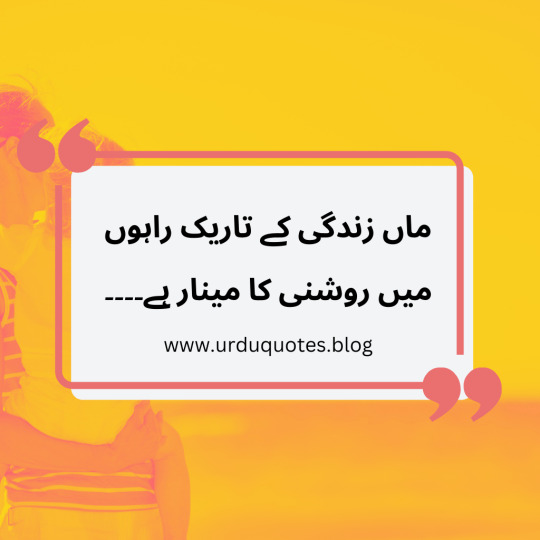
"Maan zindagi ke tarik rahon
Mein roshani ka minar hai"
ماں زندگی کے تاریک راہوں
میں روشنی کا مینار ہے۔۔۔۔
by Jamil Nihal
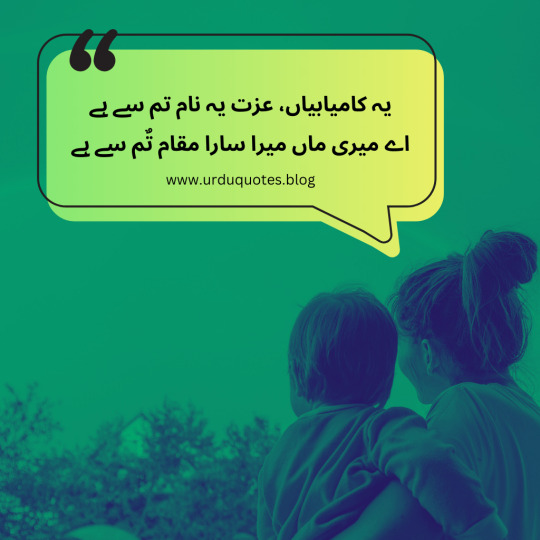
"Yah kamyabiyan, Izzat yah naam tumse hai
Aiy meri maan mera sara mukam tumse hai"
یہ کامیابیاں، عزت یہ نام تم سے ہے
اے میری ماں میرا سارا مقام تم سے ہے
by Jamil Nihal
Read the full article
2 notes
·
View notes
Text
#urdu academia#urdu language#urdu poems#urdu quotes#urdu sher#urdu words#pakistan#urdu sad poetry#urdulovers#islamic#muhammad#allah#ramadan#religion
2 notes
·
View notes
Text
Islamic Quotations in Urdu
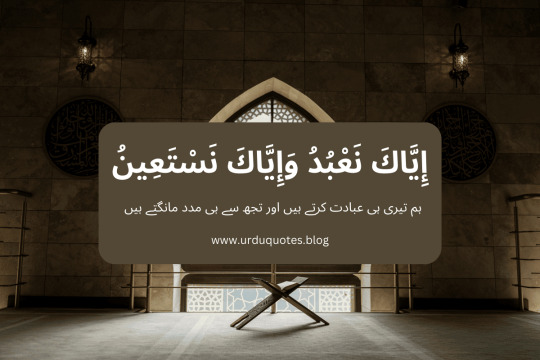
Take a spiritual journey with our collection of Islamic quotations in Urdu. Discover the profound wisdom and spiritual guidance encapsulated in the Urdu language's beauty. Allow these timeless words to inspire, uplift, and strengthen your faith. Get closer to your spiritual path by exploring now.
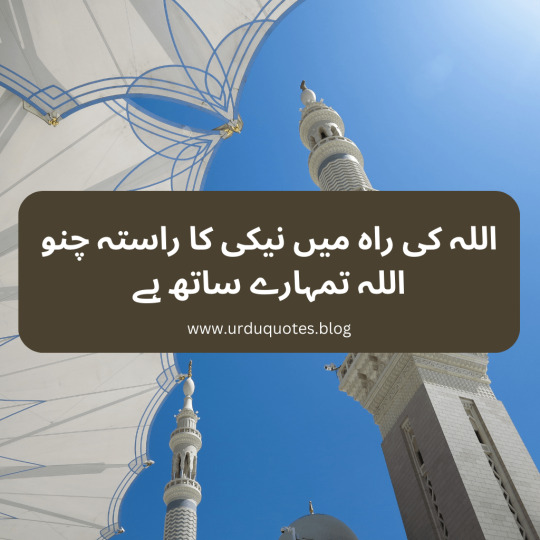
"Allah ki rah mein neki ka rasta chuno
Allah tumhare sath hai"
اللہ کی راہ میں نیکی کا راستہ چنو
اللہ تمہارے ساتھ ہے
by Jamil Nihal
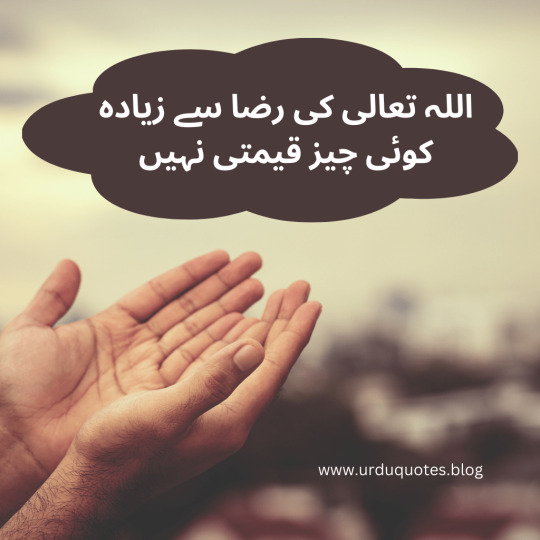
"Allah tala ki raza se ziyada
Koi cheez kimati nahin"
اللہ تعالی کی رضا سے زیادہ
کوئی چیز قیمتی نہیں
by Jamil Nihal
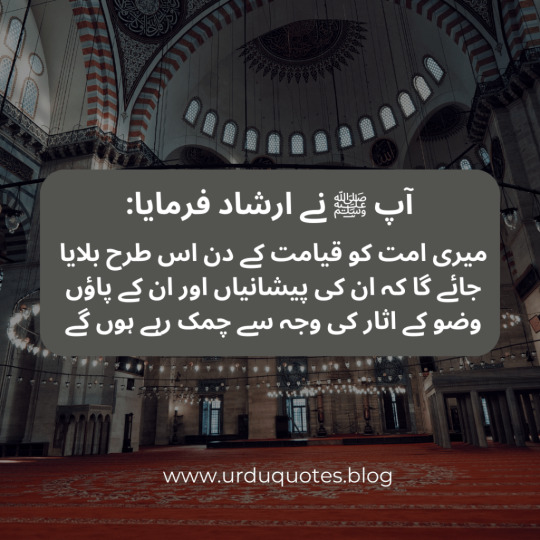
Mohammed (PBUH) Quotes:
Meri ummat ko qayamat ke din is tarah bulaya jaega ki inki peshaniyan
aur inke paon vazu ke asar ki vajah se chamak rahe honge
آپ ﷺ نے ارشاد فرمایا
میری امت کو قیامت کے دن اس طرح بلایا جائے گا کہ ان کی پیشانیاں
اور ان کے پاؤں وضو کے اثار کی وجہ سے چمک رہے ہوں گے
by Jamil Nihal

Mohammed (PBUH) Quotes:
Teen baton mein hamesha jaldi karo
namaz mein - beva ke neekah mein - Janaza mein
حضرت محمدﷺ نے فرمایا:
تین باتوں میں ہمیشہ جلدی کرو
نماز میں - بیوہ کے نکاح میں - جنازہ میں
by Jamil Nihal
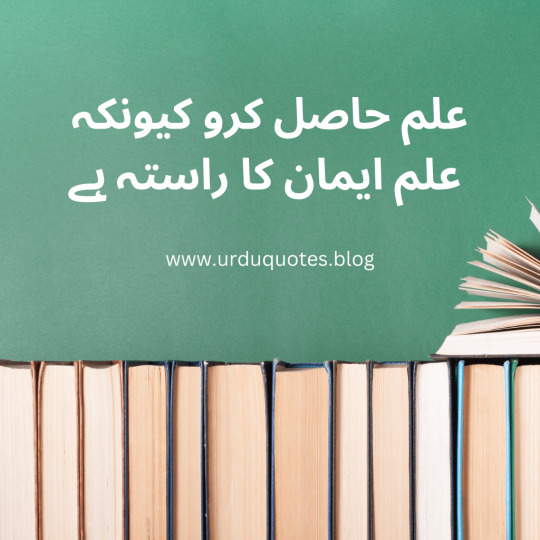
"ilam hasil karo kyun k
ilam iman ka rasta hai"
علم حاصل کرو کیونکہ
علم ایمان کا راستہ ہے
by Jamil Nihal

"Sadka dene se tumhari mali
Duriyan dur ho sakti hain"
صدقہ دینے سے تمہاری مالی
دوریاں دور ہو سکتی ہیں
by Jamil Nihal

فَبِأَىِّ ءَالَآءِ رَبِّكُمَا تُكَذِّبَانِ
Tum apne rab ki kon kon si nemat ko jhut laoge
فَبِأَىِّ ءَالَآءِ رَبِّكُمَا تُكَذِّبَانِ
تم اپنے رب کی کون کون سی نعمت کو جھٹلاؤ گے
by Jamil Nihal
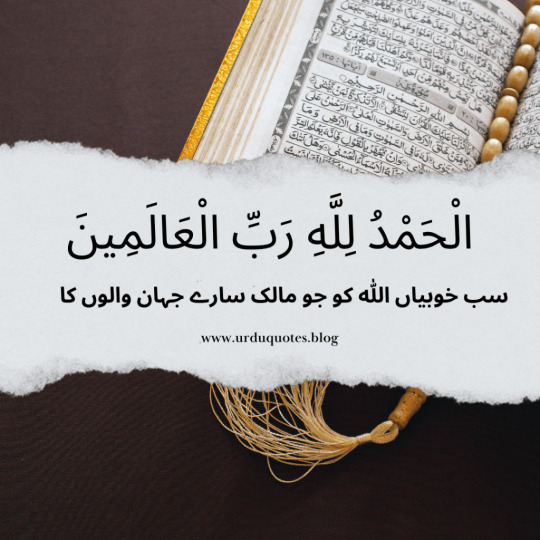
الْحَمْدُ لِلَّهِ رَبِّ الْعَالَمِينَ
Sab khubiyan Allah ko jo malik sare jahan walon ka
الْحَمْدُ لِلَّهِ رَبِّ الْعَالَمِينَ
سب خوبیاں ﷲ کو جو مالک سارے جہان والوں کا
by Jamil Nihal

"Sabar se bada koi dost nahin
Aur na hi koi tajurba"
صبر سے بڑا کوئی دوست نہیں
اور نہ ہی کوئی تجربہ
by Jamil Nihal
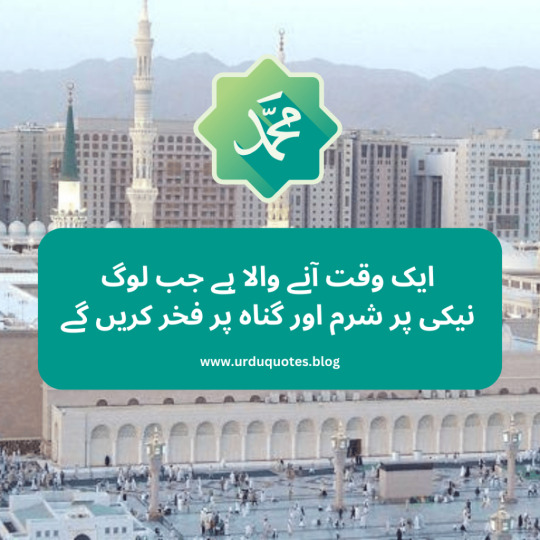
Muhammad (PBUH) Quotes:
Ek waqt aane wala hai jab log
neki per sharam aur gunah per fakhar karenge
محمدﷺ
ایک وقت آنے والا ہے جب لوگ
نیکی پر شرم اور گناہ پر فخر کریں گے
by Jamil Nihal
Read the full article
0 notes
Text
#urdu academia#urdu language#urdu poems#urdu quotes#urdu sher#urdu words#pakistan#urdu sad poetry#urdulovers#islamic#naat#muhammad#religion#allah#madinah
0 notes
Text
When was Prophet Muhammad Born Islamic Date?
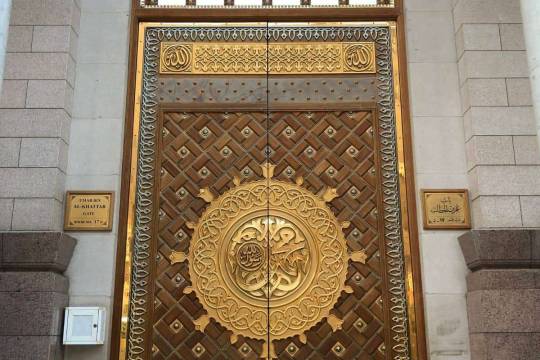
Introduction
When was Prophet Muhammad born Islamic date? Understanding the life of Prophet Muhammad is fundamental to Islamic history and faith. One pivotal aspect is the date of his birth, which holds great significance for Muslims worldwide. In this article, we embark on a journey to uncover the Islamic date of Prophet Muhammad's birth, exploring its historical context and the broader importance it holds within the Islamic calendar.
Prophet Muhammad's Birth
Prophet Muhammad, considered the final messenger in Islam, was born in the city of Mecca. His birth is a beacon of light in Islamic history, marking the beginning of a transformative era. To delve into the Islamic date of his birth, we must turn our attention to the lunar calendar, which governs the Islamic timeline.

The Islamic Calendar and Prophet Muhammad's Birth
The Islamic calendar, also known as the Hijri or Lunar calendar, is based on the phases of the moon. Prophet Muhammad's birth occurred on the 12th day of the Islamic month of Rabi' al-Awwal. This auspicious day is celebrated by Muslims globally as Mawlid al-Nabi, an occasion to commemorate the birth of the Prophet.
Historical Context of Prophet Muhammad's Birth
Prophet Muhammad was born in the Year of the Elephant, an era marked by a significant event in Meccan history. Abraha, the Abyssinian ruler, attempted to destroy the Kaaba in Mecca with his army of elephants. However, divine intervention protected the sacred site, and it was during this tumultuous period that Prophet Muhammad was born.
Significance of Mawlid al-Nabi
Mawlid al-Nabi is not just a commemoration of historical events; it is a manifestation of love and respect for the Prophet. Muslims take this opportunity to reflect on the teachings of Prophet Muhammad, emphasizing unity, compassion, and justice. The celebration includes prayers, recitation of Quranic verses, and acts of charity.
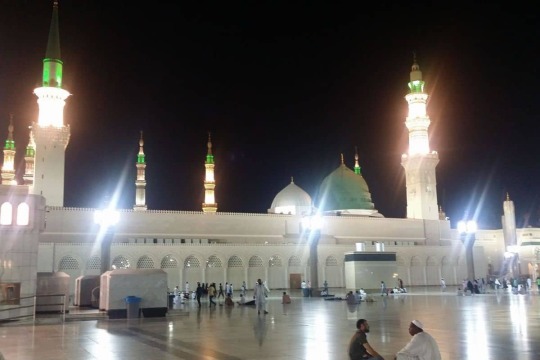
Navigating the Islamic Calendar
Understanding the Islamic calendar is crucial to pinpointing the date of Prophet Muhammad's birth. Muslims follow a lunar year, consisting of 12 months of 29 or 30 days, resulting in a year that is shorter than the Gregorian solar calendar. The Hijri calendar is the cornerstone for Islamic events and rituals, ensuring alignment with the lunar cycles.
Commemorating Mawlid al-Nabi Worldwide
Mawlid al-Nabi is celebrated with diverse traditions across the globe. In various Muslim-majority countries, grand processions, lectures, and cultural events mark the occasion. Street decorations and illuminated mosques create a festive atmosphere, bringing communities together to express their love for the Prophet.
The Impact of Prophet Muhammad's Teachings
Prophet Muhammad's life and teachings continue to shape the lives of millions of Muslims. His emphasis on compassion, justice, and humility resonates through generations. Mawlid al-Nabi serves as a reminder of these principles, encouraging believers to embody the values espoused by the Prophet.
https://youtu.be/Mn1z6FW4pJM?si=HYOVL_TkAaBKiUZo
Conclusion: When was Prophet Muhammad Born Islamic Date?
In conclusion, the Islamic date of Prophet Muhammad's birth, celebrated as Mawlid al-Nabi, is a momentous occasion in the Islamic calendar. It serves not only as a historical milestone but also as a source of inspiration for Muslims worldwide. As we commemorate this auspicious day, let us reflect on the timeless teachings of Prophet Muhammad and strive to embody his virtues in our lives.
Frequently Asked Questions (FAQs)
1. Why is Mawlid al-Nabi celebrated on the 12th day of Rabi' al-Awwal?
Mawlid al-Nabi is believed to fall on the 12th day of Rabi' al-Awwal based on historical accounts and Islamic traditions. This date is widely accepted by the majority of Muslims as the commemoration of Prophet Muhammad's birth.
2. How do Muslims calculate dates in the Islamic calendar?
Muslims use a lunar calendar, with each month beginning with the sighting of the new moon. The Islamic calendar is about 11 days shorter than the Gregorian calendar, causing Islamic dates to vary each year.
3. Are there variations in the way Mawlid al-Nabi is celebrated globally?
Yes, there are variations in the way Mawlid al-Nabi is celebrated across different cultures and regions. While the core focus remains on prayers and reflection, specific customs and traditions may vary.
Read the full article
2 notes
·
View notes
Text
#urdu academia#urdu language#urdu poems#urdu quotes#urdu sher#urdu words#pakistan#urdu sad poetry#urdulovers#islamic#allama iqbal#instagram quotes#quotes#urdu quote#quoteoftheday#book quote#life quote#beautiful quote#sad thoughts#sad poem#sad quotes
6 notes
·
View notes
Text
What is Haram Between Husband and Wife in Islam

Unraveling Islamic Guidelines for Marital Conduct
What is haram between husband and wife in Islam? Marriage in Islam is not just a social contract but a sacred covenant guided by religious principles. Understanding the boundaries of what is deemed "haram" or forbidden between a husband and wife is crucial for a harmonious and righteous marital life.
The Sacred Foundation
In Islam, the foundation of any marital relationship is built upon trust and respect. Any action or behavior that compromises these principles can be considered haram. Deception, dishonesty, and betrayal within the spousal relationship are unequivocally discouraged in Islamic teachings.

Intimacy with Boundaries
Intimacy between spouses is encouraged in Islam, emphasizing the importance of a healthy and fulfilling sexual relationship. However, certain acts, such as those imitating prohibited behaviors or causing harm, are considered haram. The emphasis is on mutual consent, respect, and the avoidance of anything that may harm the physical or emotional well-being of either partner.
Financial Transparency
Financial matters are another area where haram practices can manifest. Islam stresses financial transparency and mutual agreement on matters such as spending, savings, and investments. Concealing financial information or engaging in deceitful financial practices within a marriage is considered haram.
The Boundaries of Communication
Effective communication is the bedrock of a strong marital relationship. Islam prohibits harmful speech, including insults, offensive language, and verbal abuse. Engaging in such behavior is not only detrimental to the emotional well-being of both spouses but also goes against the principles of mutual respect outlined in Islamic teachings.
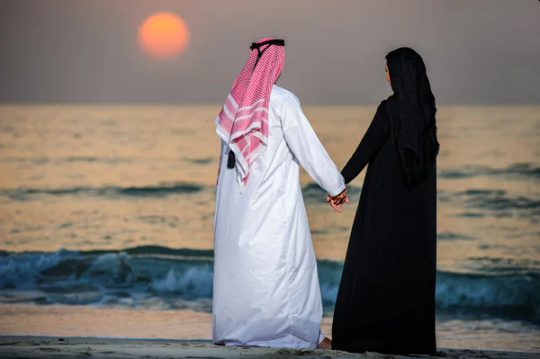
Secrets and Privacy
While privacy is acknowledged in Islam, hiding harmful secrets from a spouse is discouraged. Engaging in secretive behaviors that can harm the marital relationship, such as hidden addictions or unlawful relationships, falls into the realm of haram. Open communication and transparency are emphasized to build trust.
https://youtu.be/jrF4xB05gag?si=HsrSjdGwe-D4KiEs
Conclusion: What is Haram Between Husband and Wife in Islam
In conclusion, navigating the boundaries of what is considered haram between husband and wife in Islam is crucial for a healthy and righteous marital life. Islam places a strong emphasis on trust, respect, and open communication within the marital relationship. By adhering to these principles, couples can cultivate a strong and lasting bond that aligns with Islamic teachings.
Frequently Asked Questions (FAQs)
1. Is it haram to engage in intimate relations during specific times in Islam?
No, it is not haram to engage in intimate relations during specified times, except during the wife's menstrual period. Islam provides guidelines on permissible and impermissible times for intimacy to maintain spiritual and physical cleanliness.
2. Can a husband and wife engage in financial transactions without mutual agreement?
No, Islam encourages mutual agreement in financial matters between spouses. Engaging in financial transactions without the knowledge and consent of both partners is considered haram.
3. What role does forgiveness play in addressing haram actions within a marital relationship?
Forgiveness is highly encouraged in Islam. While certain actions may be considered haram, seeking forgiveness, repentance, and working towards positive change can contribute to the healing and strengthening of the marital bond.
Read the full article
0 notes
Text
What If Husband Does Not Agree to Khula?

Unraveling the Complexities of Khula in Islamic Law
In Islamic law, khula is the right of a woman to seek a divorce by initiating the process herself. However, what if husband does not agree to khula, the situation becomes intricate, requiring careful consideration of legal, religious, and community-based solutions.
Understanding Khula in Islamic Context
Khula is a mechanism in Islamic law that empowers a woman to request a divorce from her husband. While it is designed to provide women with an avenue for seeking dissolution of marriage, challenges can arise when the husband is unwilling to consent.

Exploring Potential Solutions
1. Mediation and Dialogue
Initiate a process of mediation involving respected community members, religious leaders, or family elders. The objective is to encourage open dialogue, address concerns, and seek a mutually agreeable resolution.
2. Legal Counsel
Consult with a family law attorney who specializes in Islamic family law. They can provide guidance on legal options available to the woman and explore avenues for divorce even without the husband's consent, depending on the jurisdiction.

3. Religious Guidance
Seek guidance from reputable Islamic scholars or counselors. They can offer insights into religious principles and may intervene to facilitate a resolution aligned with Islamic teachings.
4. Community Involvement
Involve respected community leaders or elders who can mediate between the husband and wife. Their intervention may contribute to finding a solution that takes into account the well-being of both parties.

Challenges and Considerations
While khula is a right granted to women in Islam, the refusal of a husband to agree to the process can create emotional and legal challenges. It is essential to approach the situation with patience, empathy, and a commitment to finding a fair and just resolution.
https://youtu.be/TM6NRytNz8g?si=7QTNj8GpqayMZmiz
Conclusion: What If Husband Does Not Agree to Khula?
In conclusion, navigating the scenario where a husband does not agree to khula requires a multifaceted approach. By combining legal advice, religious guidance, and community involvement, individuals facing this challenge can explore avenues for resolution. It is crucial to prioritize open communication and seek solutions that align with both Islamic principles and the legal frameworks in place.
Frequently Asked Questions (FAQs)
1. Is khula the only option for a woman seeking divorce in Islam?
Khula is one option, but there are others such as talaq (husband-initiated divorce) and fasakh (court-granted divorce). The suitability of each option depends on the specific circumstances.
2. Can a woman seek khula without the involvement of religious or community leaders?
While involving religious or community leaders is advisable for mediation, a woman can seek khula through legal channels without their direct involvement. However, community support can often facilitate a smoother process.
3. How long does the khula process typically take?
The duration of the khula process can vary based on factors such as legal requirements, jurisdiction, and the willingness of both parties to cooperate. Seeking legal advice can provide more specific information based on the individual case.
Read the full article
0 notes
Text
5000+ Best Urdu Quotes for Instagram

Discover a collection of Best Urdu quotes for Instagram that contain profound wisdom and heartfelt emotions. Discover timeless insights beautifully expressed in the Urdu language, from love to life's lessons

“Har rastey mein rakavatain hoti hain
Bus vohi kamyab hota hai jo rukavaton ko paar karta hai”
ہر راستے میں رکاوٹیں ہوتی ہیں
بس وہی کامیاب ہوتا ہے جو رکاوٹوں کو پار کرتا ہے
by Jamil Nihal

“Koshish karo kamyabi khud bakhud
Tumhare kadmon tak a jayegi”
کوشش کرو، کامیابی خود بخود
تمہارے قدموں تک آ جائے گی
by Jamil Nihal

“Kis mein himmat hai hamari parwaz mein lae kami
Hum paro se nahin hoslon se lada karte hain”
کس میں ہمت ہے ہماری پرواز میں لائے کمی
ہم پروں سے نہیں حوصلوں سے لڑا کرتے ہیں
by Jamil Nihal

“Kamyabi ke liye aapko
Khud per yakin rakhna hoga”
کامیابی کے لئے آپ کو
خود پر یقین رکھنا ہوگا
by Jamil Nihal
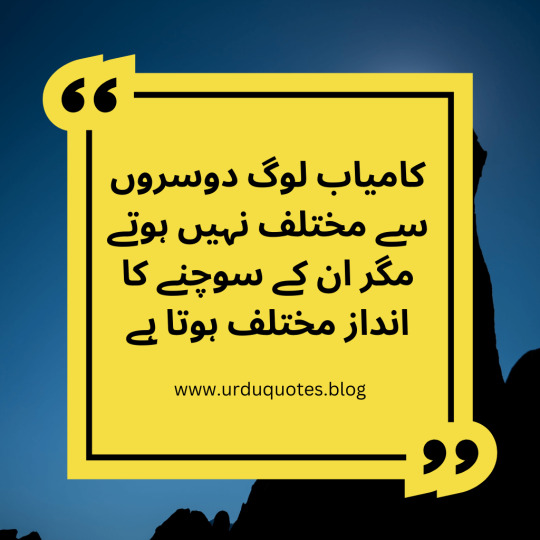
“Kamyab log dusron se mohtalif nahin hote
Magar unke sochne ka andaaz mohtalif hota hai”
کامیاب لوگ دوسروں سے مختلف نہیں ہوتے
مگر ان کے سوچنے کا انداز مختلف ہوتا ہے
by Jamil Nihal
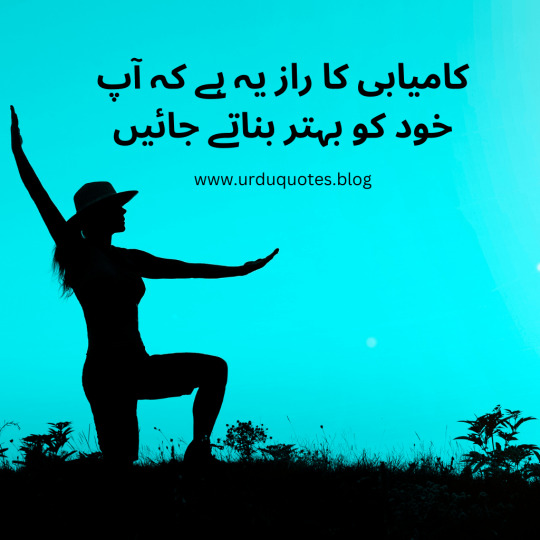
“Kamyabi ka raaz yeh hai ki aap
Khud ko behtar banate jaen”
کامیابی کا راز یہ ہے کہ آپ
خود کو بہتر بناتے جائیں
by Jamil Nihal

“Un logon ke liye Kamyab bane
Jo aapko nakam dekhna chahte hain”
ان لوگوں کے لیے کامیاب بنیں
جو اپ کو ناکام دیکھنا چاہتے ہیں
by Jamil Nihal
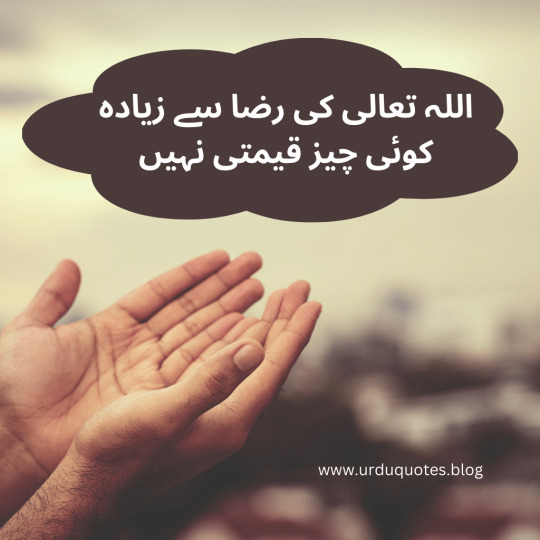
“Allah tala ki raza se ziyada
Koi cheez kimati nahin”
اللہ تعالی کی رضا سے زیادہ
کوئی چیز قیمتی نہیں
by Jamil Nihal

“Allah ki rah mein neki ka rasta chuno
Allah tumhare sath hai”
اللہ کی راہ میں نیکی کا راستہ چنو
اللہ تمہارے ساتھ ہے
by Jamil Nihal
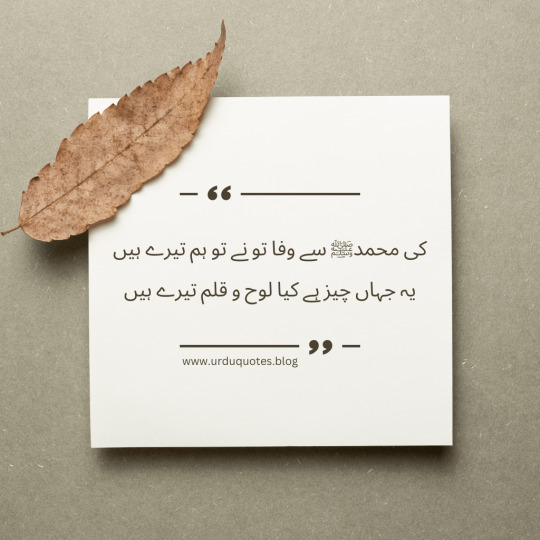
"Ki Muhammad se wafa tune to hum tere hain
Yeh jahan cheez hai kya loho kalam tere hain"
کی محمدﷺ سے وفا تو نے تو ہم تیرے ہیں
یہ جہاں چیز ہے کیا لوح و قلم تیرے ہیں
by Jamil Nihal

“ilam hasil karo kyun k
ilam iman ka rasta hai”
علم حاصل کرو کیونکہ
علم ایمان کا راستہ ہے
by Jamil Nihal
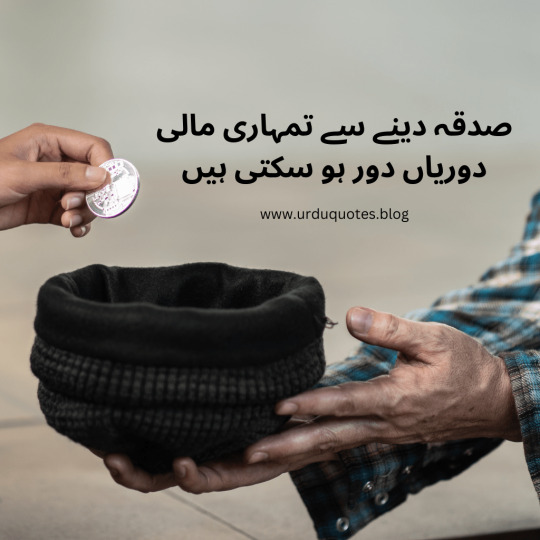
“Sadka dene se tumhari mali
Duriyan dur ho sakti hain”
صدقہ دینے سے تمہاری مالی
دوریاں دور ہو سکتی ہیں
by Jamil Nihal
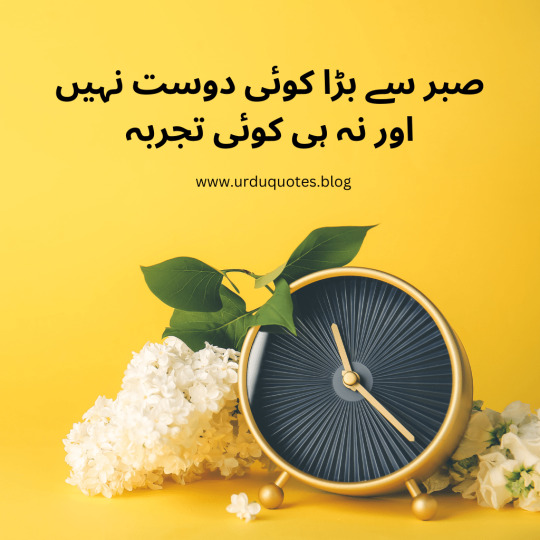
“Sabar se bada koi dost nahin
Aur na hi koi tajurba”
صبر سے بڑا کوئی دوست نہیں
اور نہ ہی کوئی تجربہ
by Jamil Nihal

“Uske vade agar sacche hote
To aaj hamare judva bacche hote”
اس کے وعدے اگر سچے ہوتے
تو آج ہمارے جڑواں بچے ہوتے
by Jamil Nihal

"Mehboob ke taaney aur nusrat sahab ke gane
Seedhay dil per lagtey hain"
محبوب کے طعنے اور نصرت صاحب کے گانے
سیدھے دل پر لگتے ہیں
by Jamil Nihal

“Tum bhi kunware ham bhi kunware
Fite munh tumhare fite munh hamare”
تم بھی کنوارے ہم بھی کنوارے
فٹے منہ تمہارے فٹے منہ ہمارے
by Jamil Nihal
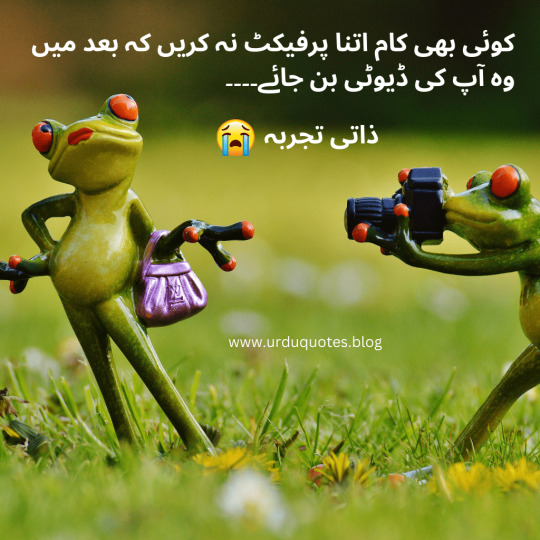
“Koi bhi kam itna perfect na karen ke bad mein wo aapki duty ban jaaye
Zaati tajurba”
کوئی بھی کام اتنا پرفیکٹ نہ کریں کہ بعد میں
وہ آپ کی ڈیوٹی بن جائے۔۔۔ ذاتی تجربہ
by Jamil Nihal

“Shakal acchi ho to aadhe dukh
Aaina dekh kar hi khatm ho jaate hain”
شکل اچھی ہو تو آدھے دکھ
آئینہ دیکھ کر ہی ختم ہو جاتے ہیں
by Jamil Nihal

“Jab yakin tutata hai to sab se
Pahle zuban khamosh ho jati hai”
جب یقین ٹوٹتا ہے تو سب سے
پہلے زبان خاموش ہو جاتی ہے
by Jamil Nihal
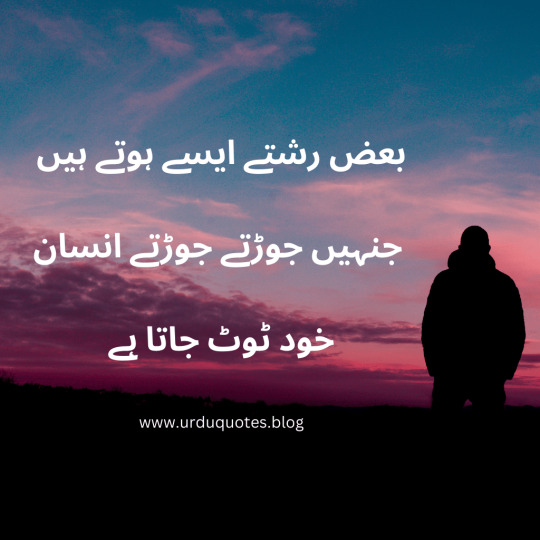
“Baz rishte aise hote hain
Jhinain jodte jodte insan khud tut jata hai”
بعض رشتے ایسے ہوتے ہیں
جنہیں جوڑتے جوڑتے انسان خود ٹوٹ جاتا ہے
by Jamil Nihal
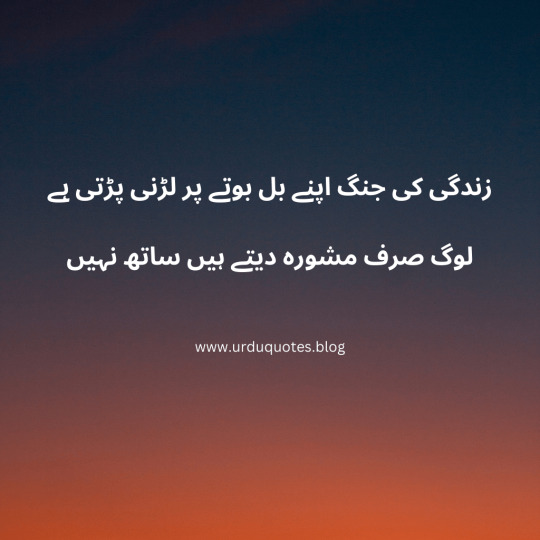
“Zindagi ki jung apne balbute per ladni padati hai
Log sirf mashvara dete hain sath nahin”
زندگی کی جنگ اپنے بل بوتے پر لڑنی پڑتی ہے
لوگ صرف مشورہ دیتے ہیں ساتھ نہیں
by Jamil Nihal

“Kaynat ki sabse mahangi chez ehsas hai
Jo duniya ke har insan ke pass nahin hoti”
کائنات کی سب سے مہنگی چیز “احساس” ہے
جو دنیا کے ہر انسان کے پاس نہیں ہوتی۔۔۔
by Jamil Nihal
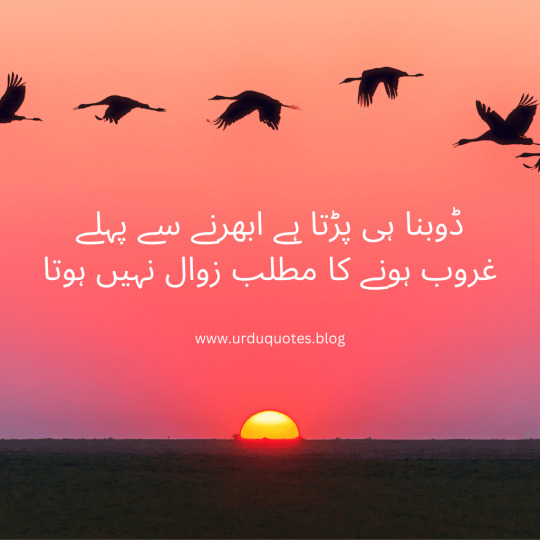
“Dubana hi padta hai ubarne se pahle
Garub hone ka matlab zawal nahin hota”
ڈوبنا ہی پڑتا ہے ابھرنے سے پہلے
غروب ہونے کا مطلب زوال نہیں ہوتا
by Jamil Nihal
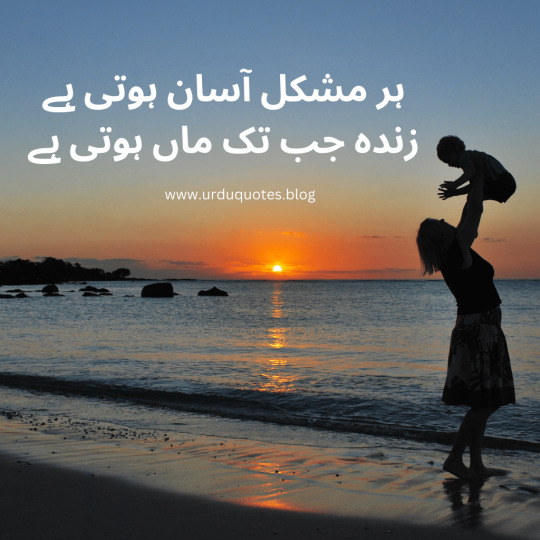
Har mushkil aasan hoti hai
Zinda jab tak maa hoti hai”
ہر مشکل آسان ہوتی ہے
زندہ جب تک ماں ہوتی ہے
by Jamil Nihal
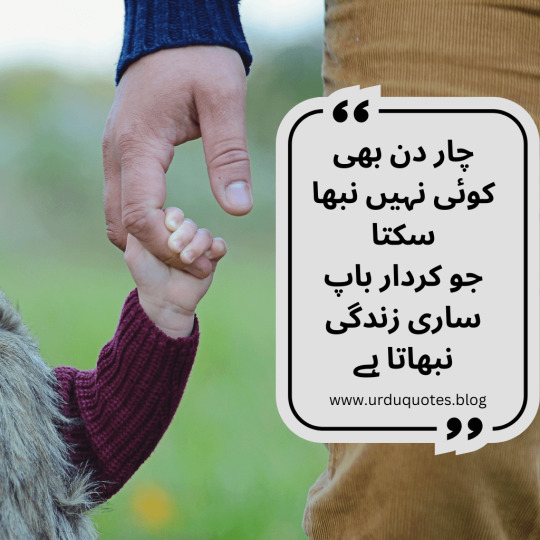
“Char din bhi koi nahin nibha sakta
Jo kirdar baap sari zindagi nibhata hai”
چار دن بھی کوئی نہیں نبھا سکتا
جو کردار باپ ساری زندگی نبھاتا ہے
by Jamil Nihal
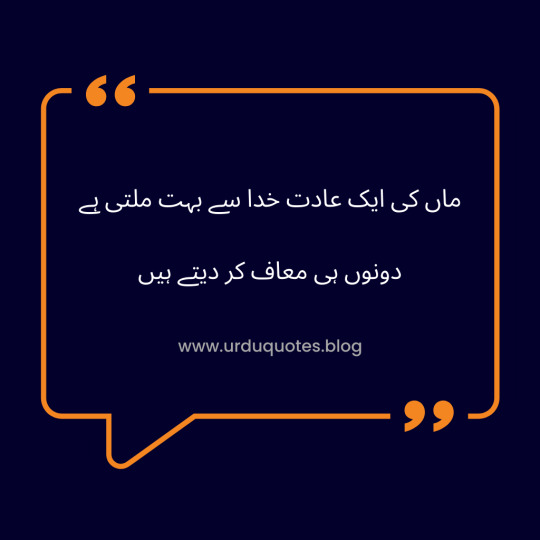
”Maa ki aik aadat khuda se bohut milti hai
Donon hi maaf kar dete hain”
ماں کی ایک عادت خدا سے بہت ملتی ہے
دونوں ہی معاف کر دیتے ہیں
by Jamil Nihal
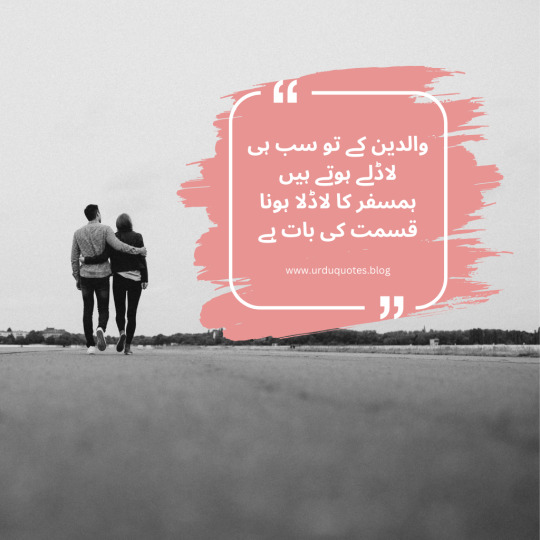
“Walden ke to sab hi ladle hote hain
Humsafar ka ladla hona kismat ki baat hai”
والدین کے تو سب ہی لاڈلے ہوتے ہیں
ہمسفر کا لاڈلا ہونا قسمت کی بات ہے
by Jamil Nihal
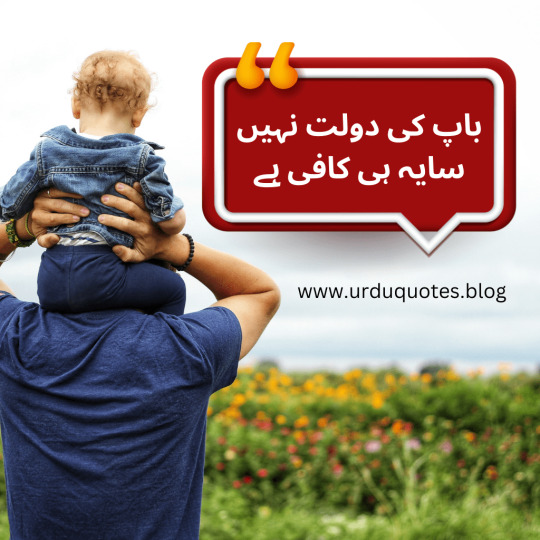
“Baap ki daulat nahin
Saya hi kafi hai”
باپ کی دولت نہیں
سایہ ہی کافی ہے
by Jamil Nihal
Read the full article
0 notes
Text
What is the Ruling on Fasting Month of Ramadan
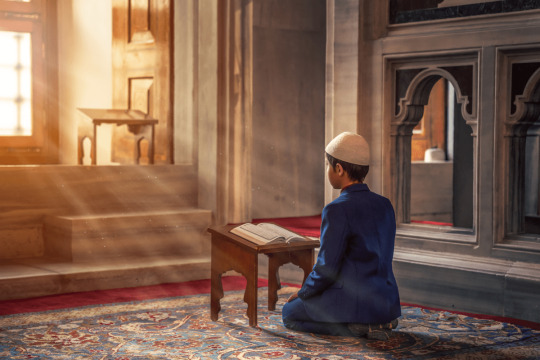
Introduction
Ramadan, the ninth month of the Islamic lunar calendar, holds immense significance in the lives of Muslims worldwide. It is a time of spiritual reflection, self-discipline, and heightened devotion. Understanding the what is the ruling on fasting month of ramadan. In this comprehensive guide, we delve into the essence of Ramadan fasting, its significance, and the rulings prescribed by Islamic jurisprudence.
The Essence of Ramadan Fasting
Ramadan fasting, known as Sawm, is one of the Five Pillars of Islam, obligatory for all adult Muslims, with certain exceptions. The primary purpose of fasting is to attain Taqwa, or God-consciousness. Muslims abstain from food, drink, smoking, and marital relations from dawn (Fajr) until sunset (Maghrib), focusing on spiritual growth, self-discipline, and empathy towards the less fortunate.
The Ruling on Fasting Month of Ramadan
According to Islamic jurisprudence, fasting during Ramadan is obligatory for every mentally and physically capable adult Muslim. The Quran explicitly states: "O you who have believed, decreed upon you is fasting as it was decreed upon those before you that you may become righteous" (Quran 2:183). The fast begins at dawn and ends at sunset, with specific guidelines regarding its observance.
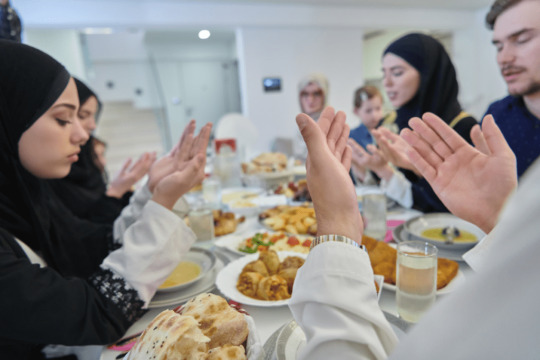
Conditions for Fasting
Fasting in Ramadan is incumbent upon those who fulfill certain conditions:
- Muslim Identity: Only Muslims are obliged to fast during Ramadan.
- Puberty: Fasting becomes obligatory upon reaching puberty.
- Sanity: Individuals must be of sound mind to fulfill the obligation of fasting.
- Physical Health: Those physically capable of fasting without harm to their health are obligated to do so.
- Residency: Fasting is obligatory upon those who are not traveling.
Exceptions and Exemptions
While fasting is obligatory for most Muslims during Ramadan, certain exemptions and exceptions exist:
- Illness: Those with acute illness or conditions where fasting may exacerbate their health are exempted.
- Pregnancy and Nursing: Pregnant or nursing women are exempt if fasting poses a risk to their health or that of their child.
- Travel: Travelers have the option to fast or postpone their fast and make it up later.
- Menstruation: Menstruating women are excused from fasting during their menstrual cycle and must make up for missed fasts afterward.
Conclusion: What is the Ruling on Fasting Month of Ramadan
In conclusion, the ruling on fasting during the month of Ramadan is clear and unequivocal. It is obligatory for mentally and physically capable adult Muslims, with exemptions for certain circumstances. Ramadan fasting is not merely abstaining from food and drink; it is a profound spiritual journey that fosters self-discipline, empathy, and devotion to God.
FAQs
- Can children fast during Ramadan? Children are not obligated to fast until they reach puberty. However, some may choose to fast for a few hours as practice under parental guidance.
- What if someone breaks their fast intentionally? Intentionally breaking the fast without a valid reason is considered a grave sin in Islam. Repentance and making up for the missed fast are necessary.
- Is it permissible to fast on behalf of someone else? While it's commendable to fast on behalf of deceased loved ones or those unable to fast due to illness, it's not a substitute for their obligation.
Read the full article
0 notes
Text
#madinah#makkah#allah#muhammad#urdu academia#urdu language#urdu poems#urdu sher#urdu words#pakistan#urdu quotes#urdu sad poetry#urdulovers#islamic
10 notes
·
View notes
Text
Ramadan First Ashra Dua

Ramadan First Ashra Dua is رَبِّ اغْفِرْ وَارْحَمْ وَأَنْتَ خَيْرُ الرَّاحِمِ��نَ "RAB-BIGH-FIR WAR-HAM WA ANTA KHAIR - UR- RAAHIMEEN" Ramadan is the holiest month in Islam, is a time of spiritual reflection, devotion, and self-discipline. As Muslims around the world embark on this sacred journey of fasting and prayer, the first ten days, known as the First Ashra, hold a special significance. In this article, we delve into the importance of the First Ashra dua and how it serves as a beacon of hope and mercy for believers.
1. Understanding the First Ashra
The First Ashra of Ramadan is a period dedicated to seeking Allah's mercy and compassion. It sets the tone for the entire month, guiding believers towards acts of kindness, generosity, and repentance. Muslims are encouraged to reflect on their past actions, seek forgiveness for their sins, and extend mercy to others during this time.
1.1 Importance of Seeking Mercy
In Islam, mercy is a central theme that underscores the relationship between Allah and His creation. The First Ashra dua emphasizes the importance of seeking Allah's mercy and forgiveness, acknowledging human fallibility and the need for divine guidance.
2. Power of First Ashra Dua
The First Ashra dua is a supplication recited by believers during the initial days of Ramadan. It serves as a powerful invocation, invoking Allah's mercy and blessings upon the individual and the community. By uttering this dua with sincerity and devotion, Muslims seek divine assistance in their spiritual journey and strive to embody the values of compassion and forgiveness.
2.1 Reciting the First Ashra Dua
The First Ashra dua is a simple yet profound prayer that encapsulates the essence of seeking mercy and forgiveness. Muslims recite this dua fervently, expressing their humility and dependence on Allah's grace. It is a reminder of the importance of repentance and self-reflection during the holy month of Ramadan.

3. Incorporating the First Ashra Dua into Daily Practice
During the First Ashra, Muslims are encouraged to incorporate the dua into their daily prayers and supplications. By reciting this dua regularly, believers cultivate a sense of humility, gratitude, and piety, drawing closer to Allah and His infinite mercy.
3.1 Benefits of Reciting the First Ashra Dua
The benefits of reciting the First Ashra dua extend beyond the spiritual realm. By seeking Allah's mercy and forgiveness, believers experience inner peace, contentment, and spiritual fulfillment. The dua serves as a source of strength and guidance, empowering individuals to navigate life's challenges with grace and resilience.
4. Conclusion: Ramadan First Ashra Dua
In conclusion, the First Ashra dua is a powerful tool for seeking Allah's mercy and compassion during Ramadan. As believers embark on this sacred journey of fasting and prayer, let us remember the significance of repentance, forgiveness, and self-reflection. May we embrace the blessings of Ramadan with open hearts and minds, seeking Allah's mercy and guidance in all our endeavors.
Frequently Asked Questions (FAQs)
1. What is the significance of the First Ashra in Ramadan? The First Ashra of Ramadan is dedicated to seeking Allah's mercy and compassion. It sets the tone for the entire month, guiding believers towards acts of kindness, generosity, and repentance.
2. How can I incorporate the First Ashra dua into my daily routine? You can incorporate the First Ashra dua into your daily prayers and supplications during Ramadan. Recite it with sincerity and devotion, seeking Allah's mercy and forgiveness.
3. What are the benefits of reciting the First Ashra dua? The benefits of reciting the First Ashra dua include experiencing inner peace, contentment, and spiritual fulfillment. It serves as a source of strength and guidance, empowering individuals to navigate life's challenges with grace and resilience.
Read the full article
0 notes
Text
#islamic video#islamic#islam#ramadan#makkah#madina#madinah#urdu language#urdu poems#urdu sher#urdu words#pakistan#urdu quotes#urdu sad poetry#urdulovers#urdu academia#allah#muhammad
5 notes
·
View notes
Text
#madina#urdu quotes#urdu poems#urdu language#urdu words#urdu sher#urdu academia#urdu lines#urdu literature#urdu shayari#urdu stuff#islamic
4 notes
·
View notes
Text
How Many Provinces of Pakistan

Introduction
In the diverse landscape of Pakistan, understanding the administrative divisions is crucial. This article sheds light on the question, "how many provinces of pakistan?" as we delve into the geopolitical structure that defines the nation. The Islamic Republic of Pakistan is a country in South Asia that shares a border with Iran, Afghanistan, India, and China. Pakistan Came into existence on 14 august 1947 after the division of the former British Raj on the Indian subcontinent. The Country occupies an area of 796,096 Square kilometers.
Decoding Pakistan's Provincial Makeup
There are officially four provinces of Pakistan currently with 1 federal capital territory and 1 autonomous state of Azad Jammu and Kashmir ( AJK ). Although Gilgit Baltistan has also been given the status of the 5th Province of Pakistan, However still there are some constitutional issues yet to be resolved. Each province boasts a unique blend of history, traditions, and landscapes, contributing to the nation's vibrant tapestry.
- Punjab
- Sindh
- Khyber Pakhtunkhwa ( KPK )
- Balochistan
- Gilgit Baltistan
1. Punjab: The Heartland
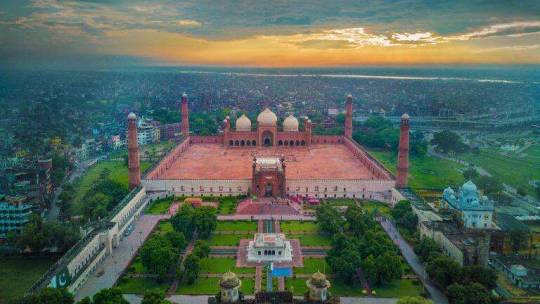
Punjab, often referred to as the heartland of Pakistan, is the most populous province. Known for its fertile plains, historical significance, and bustling cities, Punjab plays a central role in the economic and cultural dynamics of the country. Punjab is the biggest province of Pakistan in terms of the population while the second largest province of Pakistan by area after Balochistan. The Population of Punjab is more than 11 crore with an area of 205,344 square Kilometers. Province Capital City is Lahore
The Punjab province has a population that is larger than the populations of Turkey, Iran, Germany, France, Italy, and Great Britain.
2. Sindh: Where Tradition Meets Modernity

Sindh, home to the mighty Indus River, is a province that beautifully juxtaposes ancient traditions with modern advancements. Karachi is the economic hub of Pakistan, while the province itself is a cradle of historical heritage. Sindh is Pakistan’s second-largest province in terms of population and third-largest in terms of land area, after Punjab.
Sindh has a population of around 4 crores 78 lacs and an area of 140,914 square kilometers. The capital city of Sindh province is Karachi.
3. Khyber Pakhtunkhwa (KP): The Frontier Province
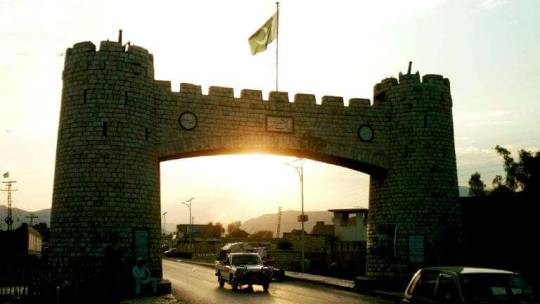
Khyber Pakhtunkhwa (KP), formerly known as the Northwest Frontier Province (NWFP) is the third-largest in population and the second-smallest province of Pakistan. With a landscape dominated by rugged mountains, KP is a region of breathtaking beauty and cultural richness. Peshawar, the provincial capital, is a gateway to the tribal areas.
The Province has a population of 3 crores 55 lacs and an area of 101,741 square kilometers.
4. Balochistan: The Vast Wilderness
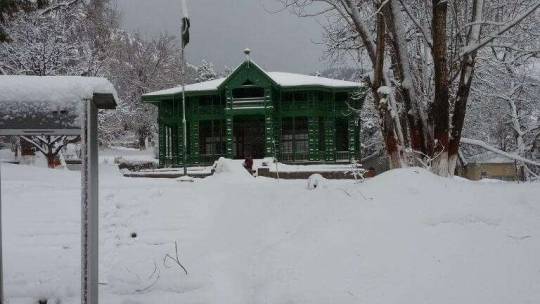
To the southwest, Balochistan sprawls across vast, arid terrains. Balochistan is the Second least populated province before Gilgit Baltistan and the largest province of Pakistan in terms of area. Rich in mineral resources, this province holds immense potential for economic development. The Population of Balochistan is somewhere around 1 crore 23 lacs and The Province occupies an area of 347,190 square kilometers, The Capital City of Balochistan is Quetta.
Thus, developed countries like Malaysia, Norway, and Italy are much smaller in size than the Province of Balochistan.
5. Gilgit Baltistan - The Heart of Nature

Gilgit Baltistan has also been given the status of a Province, however, still there are some constitutional issues yet to be resolved. Gilgit Baltistan is the smallest and least populated Province of Pakistan. Gilgit Baltistan has a far lower population than other provinces in Pakistan.
he land that Gilgit Baltistan occupies is 72,496 square kilometers and the population of the province is only around 14 lacs 49 thousand, therefore it is the smallest and least populated province of Pakistan. The capital city of the province is Gilgit.
Dispute of Autonomous State of Azad Jammu & Kashmir
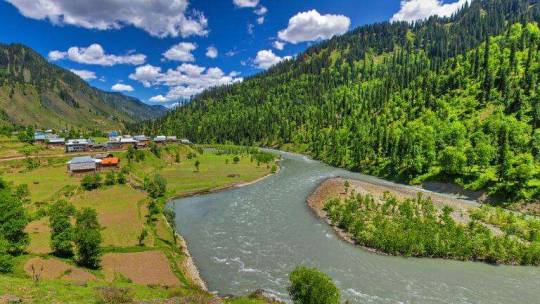
Nominally Azad Jammu and Kashmir ( AJK ) is a self-governing state, however, Pakistan has imposed control over the territory without officially merging it into Pakistan since the 1949 ceasefire between Indian and Pakistani forces. Control of the Kashmir area has been a cause of dispute between Pakistan, China, and India, who all control some parts of the territory.
India occupies an area of 101,338 kilometers, Pakistan controls 85,886 kilometers and China controls an area of 37,555 kilometers of the territory of the Kashmir region.
Conclusion: How Many Provinces of Pakistan
In concluding our exploration of Pakistan's provinces, it is evident that each region contributes uniquely to the nation's identity. The five provinces, Punjab, Sindh, Khyber Pakhtunkhwa, Balochistan and Gilgit Baltistan, form the foundation of Pakistan's administrative structure.
Frequently Asked Questions (FAQs)
1. Are there any autonomous territories in Pakistan?
Yes, in addition to the provinces, Pakistan has one autonomous territories: Azad Jammu and Kashmir (AJK)
2. Can the number of provinces in Pakistan change?
In theory, yes. Changes in administrative divisions are possible, subject to constitutional amendments. However, any such alteration would require careful consideration and legal processes.
3. What is the significance of administrative divisions in Pakistan?
The provinces play a crucial role in governance, resource distribution, and the overall development of Pakistan. Each province contributes to the diverse and dynamic identity of the nation.
Read the full article
0 notes
Text
What is the Religion of Pakistan
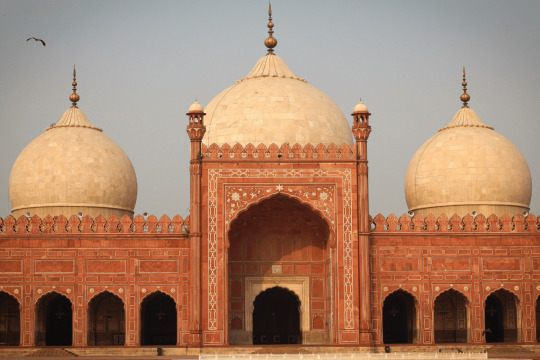
Introduction
What is the religion of pakistan? Pakistan, a nation steeped in rich history and cultural diversity, boasts a tapestry woven with various religions. In this comprehensive exploration, we delve into the intricate details of the predominant religion shaping the ethos of this South Asian country.
Embracing Diversity: The Religious Landscape
Pakistan, known for its multicultural identity, hosts several religions. However, the majority of the population identifies with Islam. This Abrahamic faith, founded on the teachings of the Prophet Muhammad, serves as the cornerstone of Pakistan's cultural and social fabric.
The Birth of Pakistan and Its Religious Identity
The Historical Epoch: Formation and Ideals
The inception of Pakistan in 1947 marked a pivotal moment in history. Driven by the vision of leaders like Muhammad Ali Jinnah, the country was founded as a separate state for Muslims. This decision, rooted in the desire for religious freedom, underscores the profound influence of Islam on the nation.
Islamic Republic of Pakistan
Pakistan officially declares itself as the Islamic Republic of Pakistan. This nomenclature signifies the integral role Islam plays in the governance and societal structure of the country. The constitution draws inspiration from Islamic principles, emphasizing the importance of justice, equality, and human dignity.

Understanding Islam in Pakistan
The Sunni-Shia Dynamic
Within the Islamic framework, Pakistan experiences a harmonious coexistence of Sunni and Shia Muslims. While the majority adhere to the Sunni tradition, the Shia community holds a significant presence, contributing to the nation's diverse religious tapestry.
Sufism: A Mystical Dimension
Sufism, a mystical and introspective facet of Islam, has deep roots in Pakistan. Sufi saints and their shrines dot the landscape, attracting devotees seeking spiritual enlightenment. This mystical dimension adds a unique and profound layer to the religious experience in Pakistan.
Navigating Religious Practices and Celebrations
Five Pillars of Islam
The religious practices in Pakistan align with the Five Pillars of Islam - Shahada (faith), Salah (prayer), Zakat (charity), Sawm (fasting during Ramadan), and Hajj (pilgrimage to Mecca). These pillars form the foundation of a devout Muslim's life, fostering a sense of community and spiritual devotion.
Eid Celebrations and Cultural Festivals
Eid-ul-Fitr and Eid-ul-Adha are two major Islamic festivals celebrated with joy and fervor throughout Pakistan. These occasions bring communities together, transcending religious boundaries. Additionally, cultural festivals like Basant add vibrant hues to the religious tapestry, showcasing the unity in diversity.
Conclusion: What is the Religion of Pakistan
In conclusion, the religion of Pakistan, predominantly Islam, weaves a rich narrative that intertwines history, culture, and spirituality. This religious mosaic, encompassing various sects and practices, contributes to the nation's unique identity.
Frequently Asked Questions
1. Are there religious minorities in Pakistan?
Yes, Pakistan is home to religious minorities, including Christians, Hindus, Sikhs, and others. While Islam is the predominant religion, the constitution guarantees the rights of religious minorities.
2. How does the government promote religious harmony in Pakistan?
The government of Pakistan endeavors to promote religious harmony through inclusive policies, interfaith dialogues, and initiatives that foster understanding among different religious communities.
3. Can tourists explore religious sites in Pakistan?
Absolutely. Pakistan boasts a plethora of religious sites, including mosques, shrines, and temples, that tourists can explore to gain insights into the country's religious and cultural heritage.
Read the full article
0 notes